Do you compost? If not, why not? It’s free, healthy, and helps the environment. But how do you get started? What kind of composting equipment should you buy?
There are many different types of composters available, but most require a lot of outdoor space and maintenance. In this article, I’ll share with you the best compost machines that will help you get started composting quickly and easily.
If you’re looking for faster composting times and less maintenance, a compost machine may be for you.
- Related: Guide to Compost
- Composting Benefits
Best Compost Machines for the Home
Let’s take a look at the best compost machines for home use.
1. Best Overall – Vitamix Food Cycler FC-50
The Vitamix Food Cycler food composter has a two-liter capacity and makes fertilizer in a matter of hours.
A great benefit is you can recycle items that cannot be added to regular outdoor composters, like chicken bones and small amounts of leftover cooked meat. The instructions recommend not composting raw meat or cooked food in large quantities as the finished product could still attract pests.
The composter heats, grinds, dehydrates and then cools the scraps, turning them into fertilizer. It doesn’t technically make compost, but you can dig it into your garden without any issues.
If you are using it for indoor pot plants, you will have to set it to rot down a bit more first. It has a carbon filter in the lid that controls odors, and it is sleek and small enough that it won’t stand out in your kitchen.
2. Best Luxury – Compostology Automated Composter GG-02
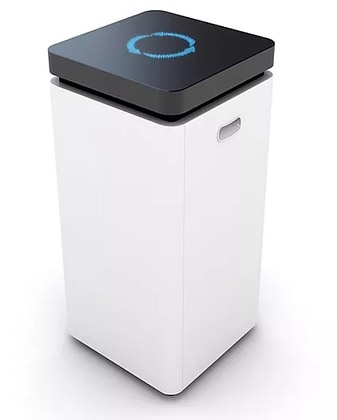
The Compostology 24-hour Composter can process up to 10 pounds of food scraps in 24 hours. It’s definitely not a countertop model, but is no bigger than a kitchen trash can, so that it won’t take up much space in your kitchen.
This composter can handle meat scraps, bones, dairy, oils, and salty foods, so you can compost a wider range of kitchen scraps and reduce your food waste further.
The large capacity of this machine makes it an ideal choice for business use and can significantly reduce the waste of a commercial kitchen.
The Compostology Automated Composter uses specially formulated microorganisms to break down food scraps, and their nano-filter technology allows the process to be odor-free.
3. Most Eco-Friendly – Exaco Aerobin 200
The Exaco Aerobin 200 composter does not use electricity, making it the most eco-friendly option. You simply drop food waste in the top of the Aerobin and remove the compost from the side doors at the bottom.
The Aerobin has a 7-cubit foot capacity. It is an aerobic hot composter, so it turns kitchen and garden scraps into compost much quicker than a regular compost bin.
You are still limited to what you put in it, like traditional compost bins. It is advised that you exclude cooked foods, oils, and meat as compost ingredients.
4. Influencers Choice – Lomi
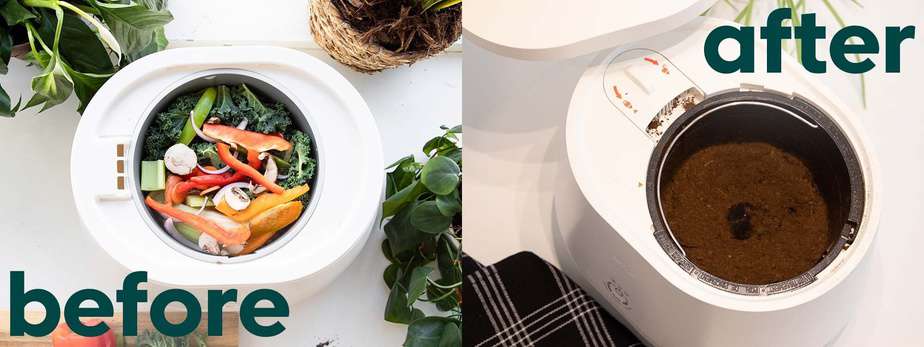
The Lomi is currently being heavily featured on social media. Its sleek design looks great in your kitchen, and the company is committed to using a portion of their revenue to offset their carbon emissions.
The soil it produces looks like beautiful loam (hence the name) and can break down food scraps in around four hours on its shortest cycle. Unlike some others on the market, it has a longer setting that produces finished compost, but this cycle takes up to twenty hours.
You can add the usual food scraps, plus animal products, cooked food, yard waste, and some biodegradable items (you should check the manufacturer’s recommendations before you add anything in question).
The Lomi even has a setting that is especially for approved Bioplastics. The Lomi shreds the waste and uses microbes to accelerate the composting process.
What is a Compost Machine?
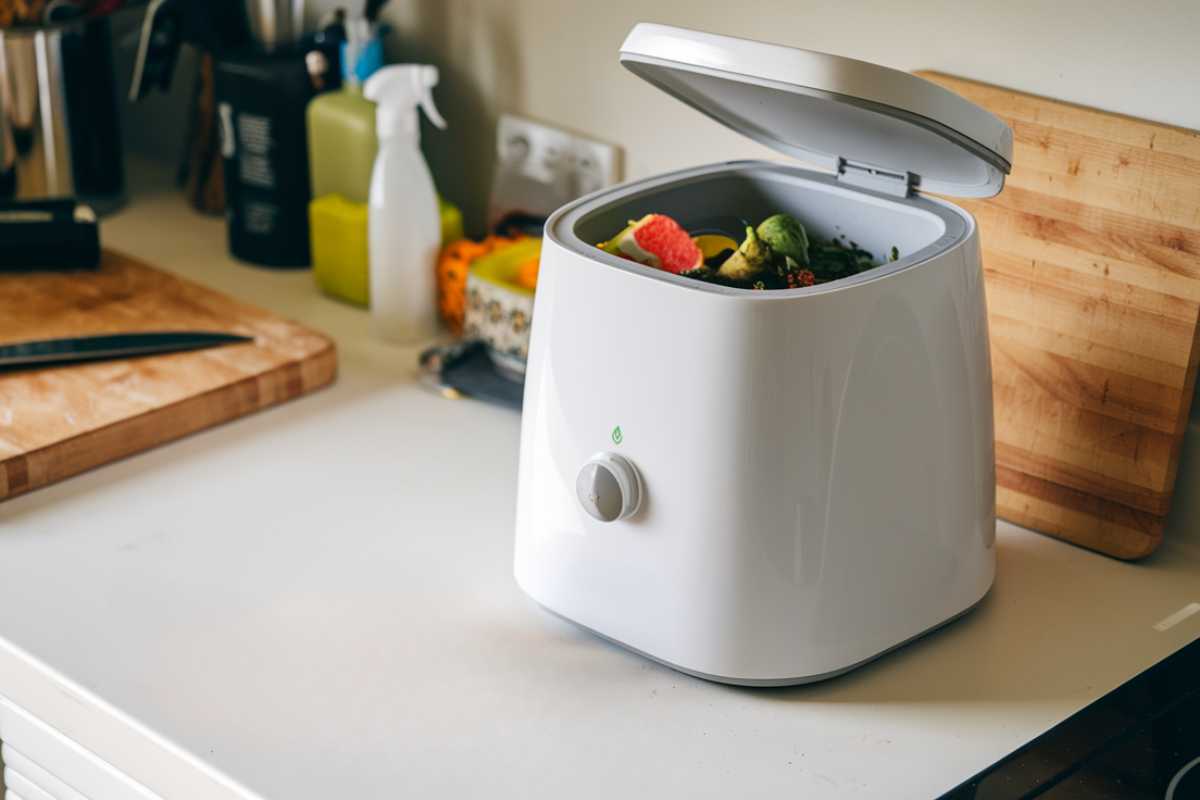
Compost machines are the latest kitchen gadgets for anyone who wants to cut down on their food waste. They allow you to turn your organic waste into usable in no time at all. The best part about these devices is that they can be used indoors or out.
They can be rather costly though, and they usually have a small capacity, so if you are using a machine exclusively, you might find yourself running out of compost every couple of days unless you have a big family.
Some of these can take up a lot of electricity, and they take anywhere from a couple of hours to an entire day to complete their cycle, so you may want to weigh the ecological benefits before you purchase one.
That being said, they are great for utilizing food scraps that you may not be able to put on an outdoor compost heap and are a lot quicker than traditional composting methods.
How Does a Compost Machine Work?
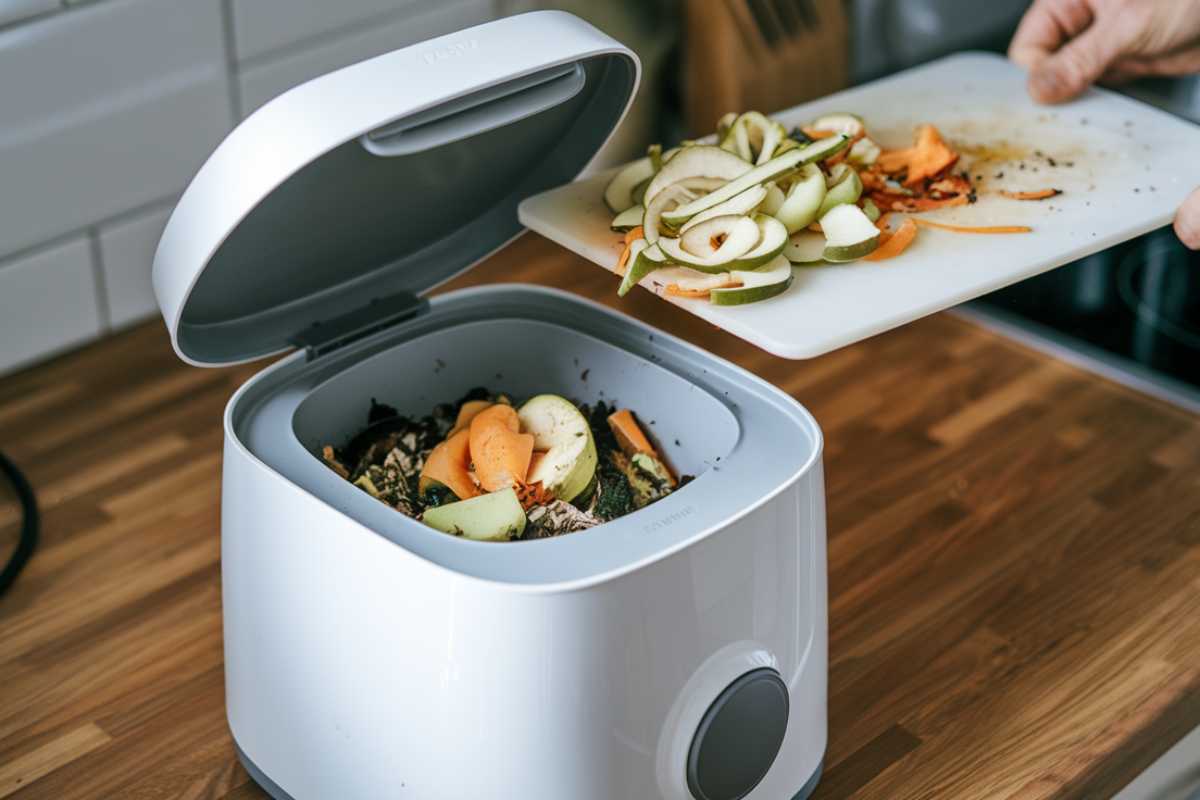
Compost machines work in a variety of ways with two main types of compost machines – Dehydrating Compost Machines and Microbial Comopost Machines. They work differently in how they break down food.
In general, most electric composters use dehydration to heat the food scraps to dry them out and kill off any seeds or pathogens. Like a dehydrator, this part of the process reduces the volume of the scraps significantly.
The composter then grinds the waste into a powder that can be easily mixed with your soil as a fertilizer or added to your outdoor composter. The broken-down scraps are then cooled to further dehumidify them and make them a safe temperature for handling.
These types of “composters” don’t actually produce finished compost, but they do break down food scraps enough that they can be dug into your garden or added to your outdoor composter.
For this reason, the manufacturers recommend only using fruit or vegetable scraps and bones, as things like meat, cooked foods, and oily foods can still attract pests once the scraps have been broken down.
Of course, this is only a general description, and some composters handle the process differently.
Some electric composters also use microorganisms to break the scraps down. The finished product of these machines is more like real compost, so you can add things that you would have left out of other varieties of composters.
The units that use microorganisms usually take a lot longer – sometimes up to 48 hours – to break the scraps down, but this is obviously still a lot quicker than a traditional method.
While this method takes longer than the dehydration method, the amount of electricity is comparable as the more expensive (and slower) machines are usually pretty energy efficient.
When choosing a compost machine, keep in mind that different types of composters will be able to handle different kinds of materials, and you can use the end product in different ways.
Compost Machine Pros and Cons
Compost machines can be broken down into two types: dehydration and microbial.
Below I’ve listed the pros and cons of each type.
Dehydration Compost Machines Pros and Cons
| PROS | CONS |
| Short cycle Relatively inexpensive Reduces mass of food waste quickly | Cannot add meat or oils The finished product is not true compost It can use a lot of electricity |
Microbial Compost Machines Pros and Cons
| Pros | Cons |
| Can add meat, cooked foods, and oils Produces ‘finished’ compost Economical | Long cycle – up to 24-48 hours More Expensive You will have to continue to purchase the microbes that come in tablet form |
Compost Machine vs. Traditional Compost Differences
The differences depend on which compost machine you are using. If you have a dehydration-based compost machine, the main difference will be that your end product will not be what is traditionally classed as compost.
Other than that, the biggest difference between compost machines and traditional composting methods is the time that it takes. Even if you are a dedicated outdoor composter, shredding your waste and turning your compost regularly, it will still take months to make compost.
Compost machines can do the job in a day or less sometimes. This feature is great if you are short on space, as you won’t need a dedicated outdoor area to compost.
The capacity of most compost machines is a lot smaller than a traditional compost heap or outdoor composter, but this issue is offset by the speed they break down the waste.
Another big difference between traditional composting and machine composting is that you do not need electricity to compost traditionally. This fact may appeal to those who have a lot of outdoor space, as the carbon footprint of a traditional composter is non-existent.
Microbial compost machines can deal with food scraps that you cannot put on a compost heap. These include meats, fats, oils, and even some vegetables. They can also produce an end product that is much closer to compost than a dehydration-based machine.
Learn more about Composting Browns and Greens.
Who Should Use a Compost Machine?
Compost machines are perfect for those who don’t have a lot of yard space or those who want to compost quickly. Compost machines are ideal if you mainly compost food waste rather than garden waste.
Likewise, if you have a business that produces a lot of food waste, a compost machine is a great way to deal with it. Just load it up and let it do its thing overnight. The finished compost can be used or even sold to customers.
Who Should Use Traditional Compost Methods?
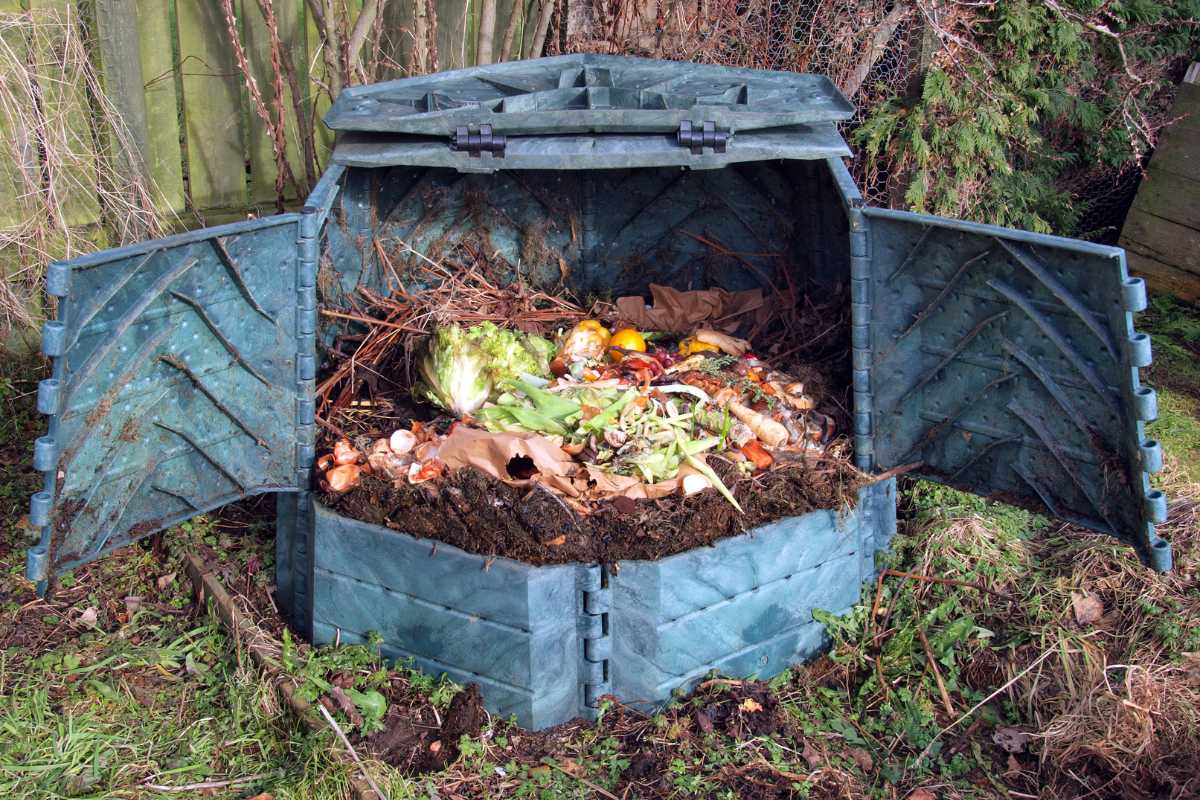
Traditional composting is perfect for those with vegetable gardens or large yards. It is much easier to compost garden waste in a larger outdoor composter.
Although it takes a longer time for the compost to form, it is perfect for a yearly application to a vegetable garden. If you are gardening outside, the time it takes for the compost to develop isn’t usually an issue. You will probably be using your compost just after the growing season, and you have a year for your waste to break down.
You could use a compost machine alongside a traditional composter to maximize your composting. You could add the dehydrated waste from your composter or use a microbial composter to deal with the scraps you cannot use in the traditional method.
Compost Machines Final Thoughts
Compost machines are a convenient way to get started composting at home. They are easy to set up and maintain, and they are more efficient than traditional composting methods.
They are best suited to people who don’t have a ton of space or who want to get started right away.
Compost machines are ideal for people who mostly compost food waste, as they can handle meat, fat, oil, and other materials that would otherwise go straight into the trash bin.
Here are some other compost articles that you might be interested in:



